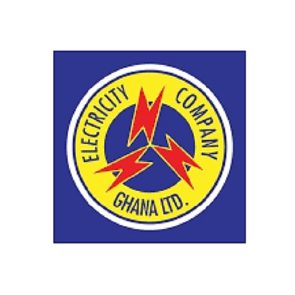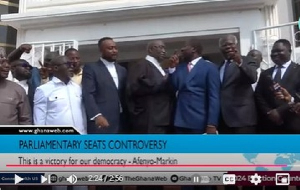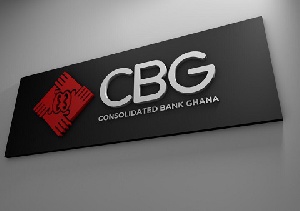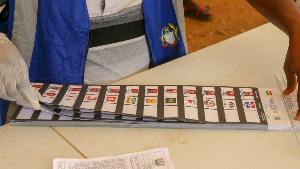On the nationwide disconnection exercise being undertaken by the Electricity Company of Ghana (ECG), I believe there are deeper issues that need to be looked at and addressed, as the Disconnection exercise is an expensive undertaking for a distribution company such as ECG and ultimately the Nation.
Disconnection doesn't and will never assist in "Revenue Mobilization " as it seems on the surface! Does it rope in some Revenue, YES! but at a relatively higher cost, especially where the valuable time of Management staff and the board are involved because mass disconnection exercises are not done for Free!
For a distribution company, revenue is made only when power(electricity) is consumed by its customers of course when these consuming customers are paying for their electricity bills.
Disconnection means the cut of the service and reconnection after the payment is made, both instances have implied costs.
From the customers’ perspective:
For a residential or commercial entity to have access to electricity, especially when it is a new service to be connected, huge initial costs are involved by way of payment for poles and lines among others, which is borne by the customer.
In some exceptional cases where the energy ministry is involved depending on the type of service, these costs could be significantly reduced relative to acquisitions from the distribution company (ECG).
However, after these Heavy sums are paid, within 24 hours, the Poles and Lines, revert back to ECG, becoming the Property of the latter, a Trauma unbeknownst to customers and never recover from!
They feel entitled and cheated.
To atone for their trauma, and the rather rising costs of electricity that may be understood, but however, not accepted, these customers try to avoid payments for what they consume, just to feel, they are reaping a bit of their initial investment.
The "Police" (meter)installed on their premises gets tempered, termed illegal connection or moved outright when the Customer is relocating in some cases, bear in mind they paid for the Service, be it a new connection or separate meter in the case where an earlier new connection existed at the premise.
From the distribution company's (ECG) perspective:
As a Distributor, Electricity (Power) is Usually bought mostly on credit from Transmission Companies, then sold to its customers.
To do this, they also have other additional services such as the sales of poles, transformers, cables (lines), meters, etc in the house which are quoted to customers after an estimate is prepared by the office in charge.
Clients apply or purchase forms that have terms of the service that clearly includes the reversion of the items being paid for in the estimate quoted to the Company as its property. Sadly, most clients do not read these forms nor the terms of their service.
Meanwhile, the company owes its suppliers and needs to pay back the volumes they get for onward distribution.
Huge overhead costs among other costs make power distribution rather expensive.
Tariffs for the sale of electricity are not determined by the electricity company, but by Public Utility Regulatory Commission (PURC).
"The Public Utilities Regulatory Commission (PURC) was established in October 1997 under the Public Utilities Regulatory Commission Act, 1997 (Act 538) as a multi-sector regulator to regulate the provision of electricity and water utility services. The establishment of the Commission was part of the Government of Ghana’s utility sector reform process.
By virtue of the Energy Commission Act, 1997 (Act 541) PURC also regulates the transportation of natural gas services. Under Section 4 of Act 538, PURC is an independent body and is not subject to the control of any authority in the performance of its functions.
The Commission however submits annual operational and financial reports to Parliament. The Office of the President also exercises some administrative oversight for the Commission."
The real issues:
Some debts owed ECG can be as old as my grandmother and she's very old and I love her.
The ages of some of the readings that generated the debts accrued are sometimes from times with different tariff rate regimes, yet at the time of request by the Distribution company, the installation date may be unknown therefore the age of the reading may be sometimes reduced in the cases where the meter is just discovered and in which case has accumulated readings from sometimes undetermined/uncertain installation dates.
These readings, when billed within the wrong age bracket have financial implications for the customer, yet the dilemma remains that the true age of the reading is not always known with certainty due to errors that cannot be mentioned in this write-up.
Some of these debts, in the cases where the actual dates are even known, were inherited by the customer from previous users. To salvage these occurrences, prepaid services were introduced, but this doesn’t spare the debt owed by the customer and the debt gets placed into the prepaid account.
Coupled with the secret vengeance of the initial trauma mentioned earlier, the "Power" Struggles begin between distribution companies and their unpaying customers ...
Both believe they are right in their actions...
These situations are not unique to ECG but also apply to other utility companies such as Ghana Water Company.
Ghana pays the ultimate price and that includes and affects us all, whether directly or indirectly.
The situation needs deeper scrutiny and attention by government, to ensure fair play for All involved.
Opinions of Saturday, 8 April 2023
Columnist: Leo Nelson
ECG's nationwide power disconnection exercise: A case of trauma at display
Entertainment


















